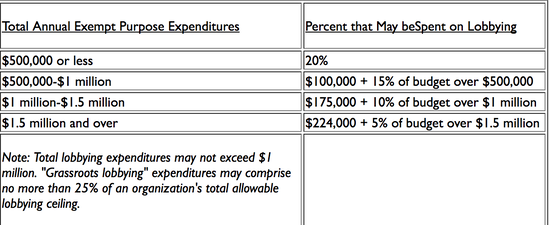|
In This Issue
Idaho Nonprofit Center Policy Statement Regarding the Johnson Amendment
Recently, the Idaho Nonprofit Center sent out a survey to our members requesting feedback on the proposed repeal of the Johnson Amendment (H.R. 781 and S. 264), a federal law that prohibits 501(c) (3) organizations from endorsing or opposing political candidates. Over 84% of survey respondents do not approve of the proposal to repeal and eliminate the Johnson Amendment.
Based on these results, and alongside thousands of nonprofits and state associations nationwide, the Idaho Nonprofit Center opposes the repeal or weakening of the Johnson Amendment. The Idaho Nonprofit Center fully supports nonpartisanship in our sector and cannot support the weakening or removal of current federal tax law protections that prohibit 501(c) (3) organizations from endorsing, opposing, or contributing to political candidates. Nonpartisanship is a cornerstone principle that strengthens public trust in our charitable community. This law protects the integrity and independence of charitable nonprofits and foundations. In turn, it creates an environment where the charitable community is free to solve community problems and work together above partisan divisiveness. As such, while we oppose any legislation aimed at repealing or weakening the Johnson Amendment and we look forward to the opportunity to connect and educate our congressmen to the thousands of individuals impacted by this legislation in Idaho’s nonprofit sector. Senator Mike Crapo serves on the Senate Finance Committee who has the senate version of the bill to repeal the Johnson Amendment. Congressman Raul Labrador was one of the original sponsors of the congressional version of the same bill. We contacted Congressman Labrador’s office for a statement regarding his position and as soon as it is received we will share it with you. Regardless of where you stand on this issue, we encourage you to exercise your right both personally and professionally to contact our congressmen and senators and express your views on this issue. Johnson Amendment Survey Results
According to the survey results received by members of the Idaho Nonprofit Center, data showed that members opposed the repeal of the Johnson Amendment.
Contacting Legislative Officials
Sign Community Letter
We encourage nonprofits to join in on the community letter as well. The community letter is an opportunity for nonprofits to show their support for nonpartisanship.
By signing this online document, the charitable community show their desire for“strongly opposing proposals that would politicize the charitable nonprofit and philanthropic community by repealing or weakening current federal tax law protections that prohibit 501(c)(3) organizations from endorsing, opposing, or contributing to political candidates” History of the Johnson Amendment
According to NPR, the “The Johnson Amendment regulates what tax-exempt organizations such as churches can do in the political arena.
“Under terms of the 1954 legislation (named for its principal sponsor, then-Sen. Lyndon Johnson), churches and other nonprofit organizations that are exempt from taxation "are absolutely prohibited from directly or indirectly participating in, or intervening in, any political campaign on behalf of (or in opposition to) any candidate for elective public office” What this means:
Nonprofits with a 501-c-3 status are required to maintain nonpartisanship within their organizations which keeps all funds donated pouring back into the mission, vision, and values, of the organizations rather than to political affiliations.
Nonprofits Looking to Fund Political Campaigns and Candidates
If churches or other 501-c-3 organizations want to fund political parties, there are a few options or ways to go about it. Nonprofits may gain a 501-c-4 status:
Churches are not required to have an IRS 501-c-3 status, but this does mean that donations to a church may or may not be tax deductible. As long as a church does not have 501-c-3 status they may speak freely and may also support and endorse political parties and candidates. What Can Nonprofits do with a 501-c-3 Status?
Federal Issues to Watch
Charitable Deduction
In order to celebrate the 100 year anniversary of the Charitable Deduction, John Lewis (D-GA) and Pat Tiberi (R-OH) introduced to Congress the House Concurrent Resolution 34.
This proposal “provides a historical timeline of the deduction, enacted into the federal tax code in 1917, and highlights the benefits to the arts, humanities, religious institutions, education, human services, environment, health programs, and many other subsectors, as well as recognizing the empowerment and force of individual philanthropy” - National Council of Nonprofits.
National Network to End Domestic Violence
According to the National Network to End Domestic Violence (NNEDV), domestic violence shelters are facing budget cuts and reductions. Unfortunately, there is limited funding for victims facing domestic violence across the United States. Shelters are facing reduced staff, and fewer resources.
Keeping Up with the NewsBrooke DamicoLegislative Watch is written by Brooke Damico, a public policy student at Boise State University.
0 Comments
Leave a Reply. |
Welcome!We hope you find these resources beneficial. We welcome suggestions on how we can improve this section. Contact us at Categories
All
Archives
July 2024
|



 RSS Feed
RSS Feed
